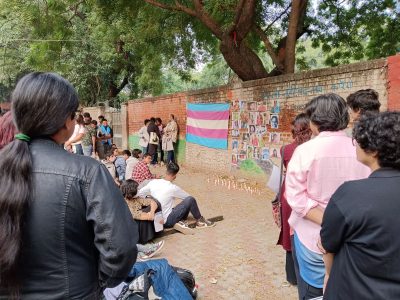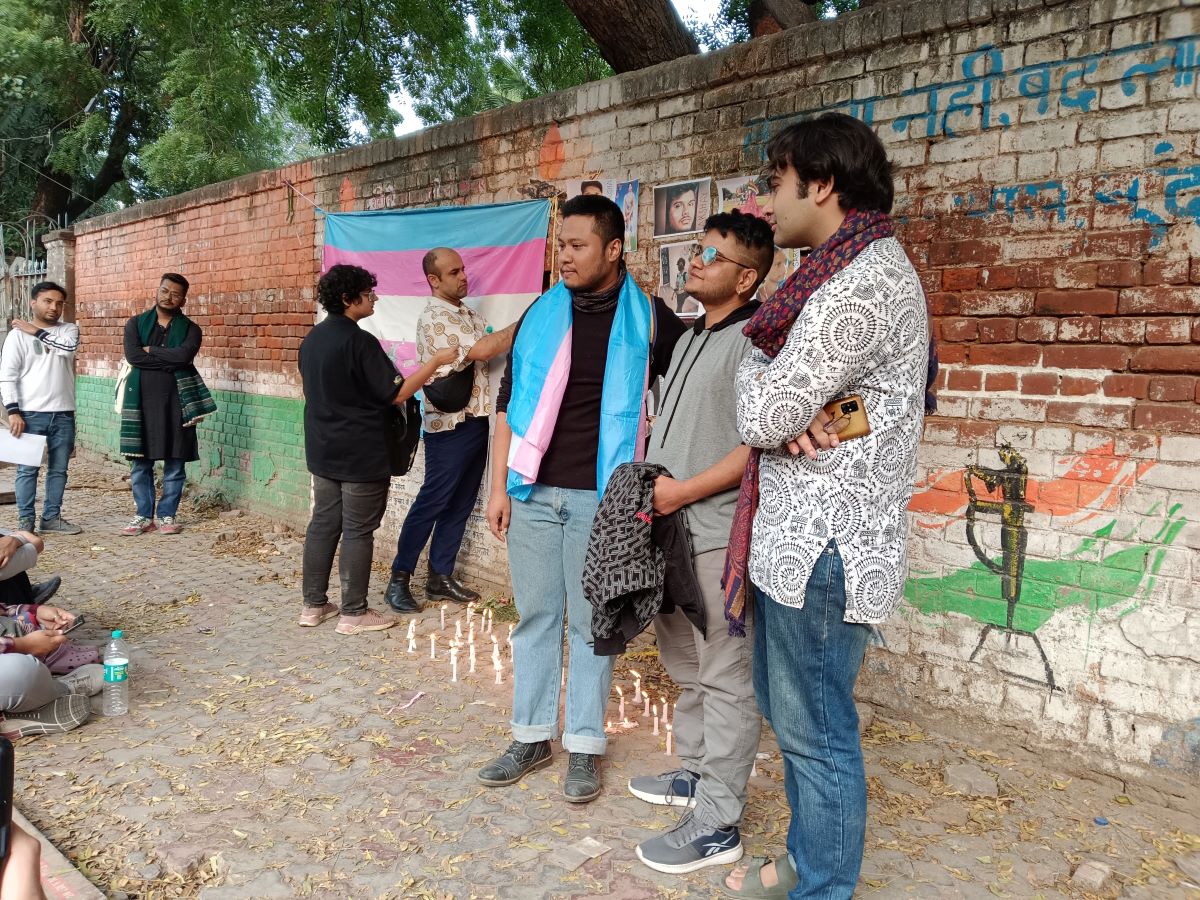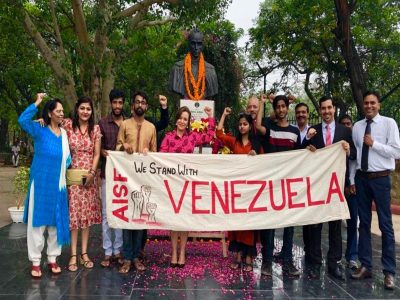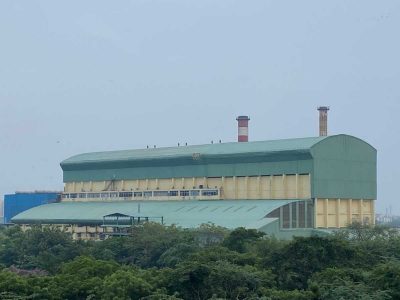On November 19, people from the trans community gathered at Jantar Mantar to commemorate Transgender Day of Remembrance. The event, which saw the participation of around 50 individuals, paid tribute to trans people who lost their lives over the last one year due to societal and custodial violence, as well as crimes against the trans community.
The participants lit candles, raised the trans flag, and talked about the everyday discrimination they face.
“The people we see in photographs (the ones who lost their lives due to various kinds of violence) today, died because the very institutions that claim to support and protect us are actually the ones who take our lives. Some of the most prevalent kinds of violence the trans community faces is custodial violence. We are thrown into asylums and hospitals and we face discrimination, violence even there. The educational institutions we go to are another battle,” said a trans woman present in the gathering.
Transgender Day of Remembrance is observed annually on November 20 to honour the memory of transgender individuals who have lost their lives to anti-transgender violence. The day serves as a solemn reminder of the discrimination, harassment, and violence that many transgender people face simply for being themselves.
The day was first organised in 1999 by transgender advocate Gwendolyn Ann Smith as a way to memorialise the murder of Rita Hester, a transgender woman. Since then, the day has grown into an international event that raises awareness about the issues faced by transgender people and advocates for the end of violence and discrimination against them.
In Delhi, the event was held to “highlight how the high number of deaths of trans persons is not accidental but caused by the multitude of violence – both direct and indirect – in the form of hostility, rejection and abuse, and brought upon us by the societal institutions, including natal families”.
A trans man, who was in his early 30s, lamented about the state of trans lives in the country.
“I am 31 years old and the only thing I hope for in future is to survive. There are so many trans persons who have lost their lives to societal violence but we will continue to thrive,” he said.
The gathering also highlighted the lack of implementation of Transgender Persons (Protection of Rights) Act which was passed by the Indian Parliament in August, 2019.
“While several provisions and definitions in the act are being challenged by transgender persons in the Supreme Court, some of its provisions which can prove to be beneficial, lack in their implementation,” the organisers said.
The Act also dictates the issuance of identity cards to transgender persons. However, activists and trans persons have reportedly said that they have faced harassment during the process of issuance of the identity card. There has also been a delay in its implementation.
The gathering also highlighted the “lack of awareness and sensitivity in officials towards trans persons, causing delays in the making of essential documents needed to avail basic services.”
The identity card is a crucial process for transgender persons, as the government issues a fund of Rs 5 lakh for insurance for each individual holding the card. Through this fund, a trans person is eligible to get any kind of treatment under the Ayushman Bharat PM-JAY in several hospitals across the country. The treatment includes sex reassignment surgery (SRS) or gender-affirming surgery. They can also apply for scholarships and grants for skill development post-certification.
The lack of gender-affirming services was also highlighted, which is often coupled with ridicule and hostility towards transgender persons. The Trans Act, which mandates competent authorities to ensure access to medical services such as gender-affirming services for the community, has not been properly implemented, according to organisers.
The organisers also emphasised on the need for sensitisation of competent authorities so that trans people do not face any harassment in medical facilities.
“These are only legal aspects that are lacking. The societal humiliation, violence, and discrimination that the trans community face is beyond comprehension. While we must fight for our rights in the legal domain, we need the support and solidarity from various groups to create societal change — only then trans lives will not be threatened,” said Fiza, a 19-year-old trans woman.

The organisers also demanded a Transgender Welfare Board to be set up in Delhi, as mandated by the Act.
Trans activists from marginalised castes have been demanding horizontal reservation for the trans community. Horizontal reservation means separate reservations within each caste category – scheduled castes, scheduled tribes, other backward classes, and general category.
“We assert the importance of horizontal reservations for transgender persons, owing to the double marginality faced by transgender persons from oppressed caste locations. Vertical reservations, if replicated for trans persons, shall require them to choose between their caste or gender identity. Moreover, the recent Bihar caste census data reinforces the need for extending reservation percentage for all,” the organisers said.
The gathering culminated in memory of trans lives lost, and the many challenges that the community faces to realise trans joy — a phenomena that looks at trans lives beyond victimhood, and claims that trans people are proud, happy, and fulfilled in their skin.
Some trans persons also remembered the trans and queer people lost in the ongoing genocide in Palestine, Congo, and Sudan.





